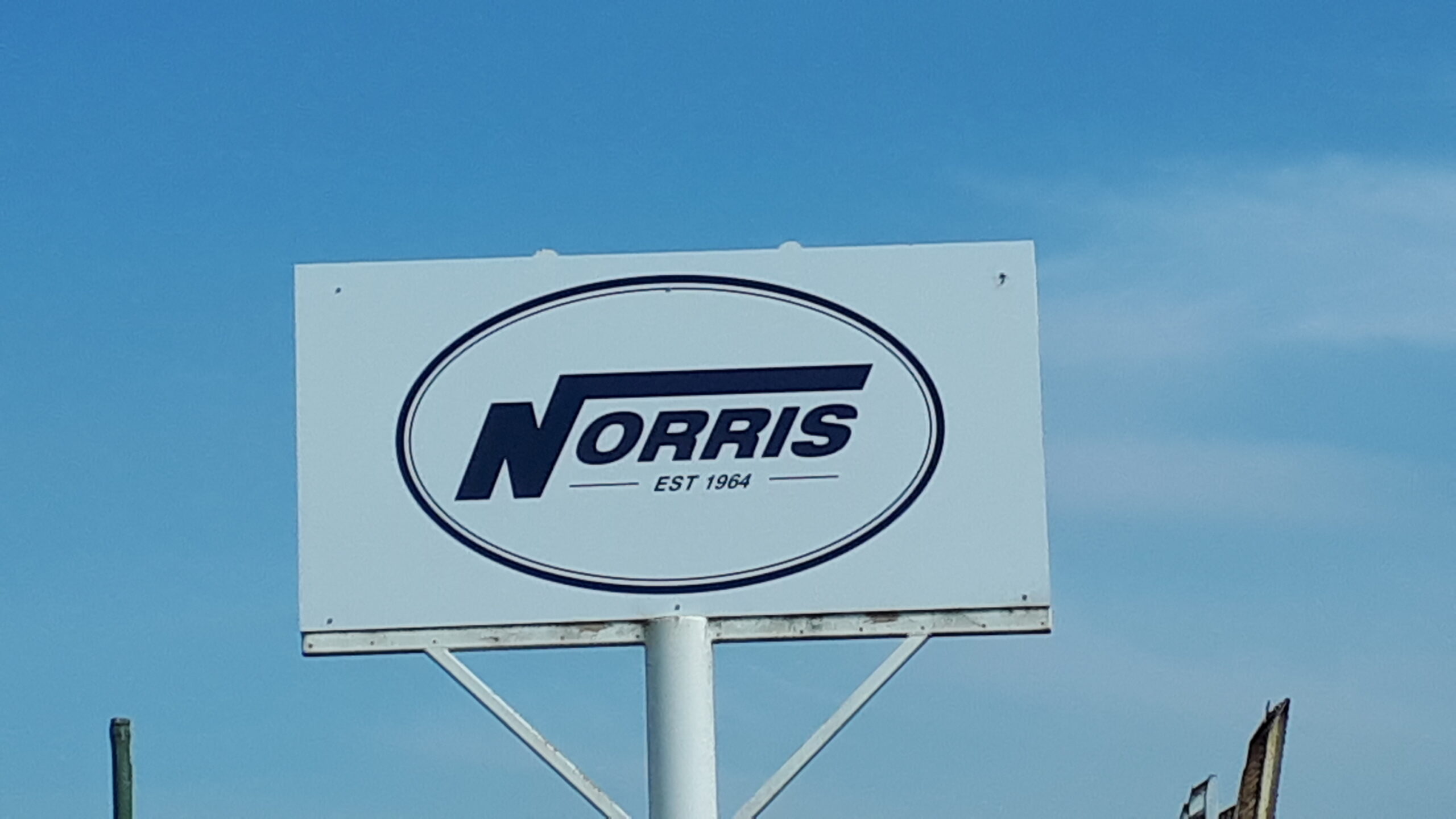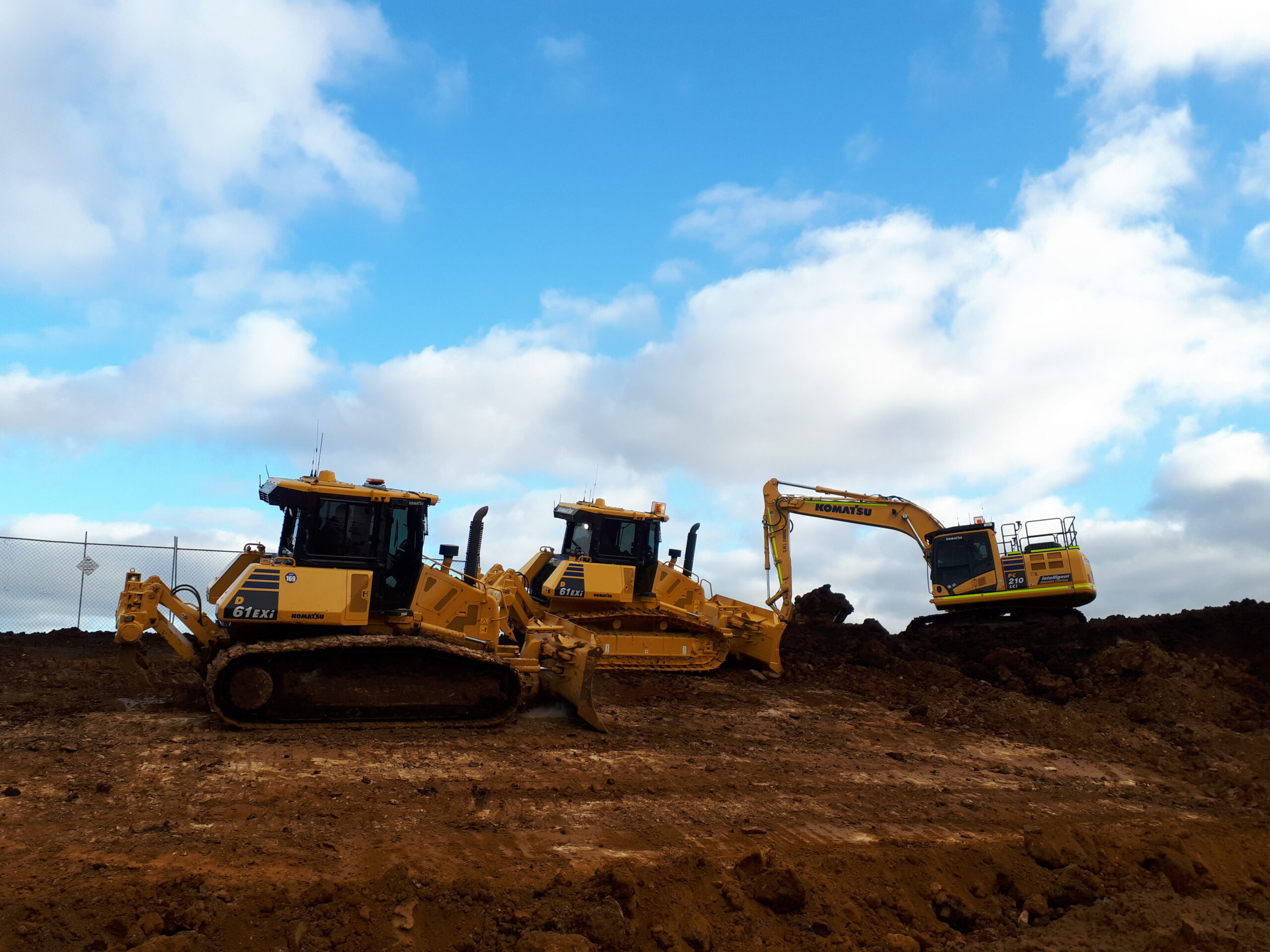A new generation of heavy plant operators is using Intelligent Machine Control to drive a 20-30percent increase in productivity for one of the country’s most progressive civil construction companies.
A group of young operators – the youngest is just 20 – have taken the opportunity on Komatsu’s in-cabin IT processes as a means of streamlining jobs and substantially increasing efficiency.
Norris Construction Group, operating out of Geelong, has eight IMC machines – ranging from dozers to excavators – at the core of its 36 strong Komatsu fleet.
Tim Norris,48, the second-generation owner of the fast-growing business, credits the advent of IMC as the most startling innovation of the decade and the root cause of his expansion.

“You just don’t make mistakes – the job is there on the screen in front of the operator when he climbs on board,” Tim said.
“Where a foreman might forget to give an instruction, the entire sequence of activity in an IMC machine is outlined and continually updated for the operator.
“It enables us to work when inclement weather prevails because it eliminates the need for a person on the ground.”
Tim, who joined the family firm when he was 25 and fresh out of university with a degree in Commerce, hesitates to compare “old ways” to those that are available now, but he does acknowledge that it takes young people to get the best out of the intelligent machinery.
“The younger generation has a strong grasp of technology,” he said.
“Aided by IMC they can think three or four days ahead on any job – plotting the best way for a work program to proceed.
“It’s not just a case of following the orders on the screen.
Access to the project design and scope via the screen is priceless – each operator can use the IMC system to better plan a work path.
“There are a number of different applications, some of which help to increase productivity between 20-30 per cent.
“A picture (on the IMC screen) is truly worth a thousand words.”
Tim’s dad, Keith, was old school. He came to the business more than 50 years ago looking for a seachange, and it came on a car production line in Geelong where he decided, literally overnight, that there had to be more to life.
“He started buying old machinery and applying it to drainage projects in the Geelong area,” Tim said,
“and he’d soon built up a good business.”
But the pyramid building societies of the 1980s and the rogue operators they spawned, left Norris Construction Group in dire financial trouble carrying heaps of other people’s debt.
That’s when Tim stepped in. “I thought I was destined to apply my Commerce degree in the city – instead I found myself graduating and immediately joining the family business at its lowest ebb,” he said.
“You always hope you’re going to follow in your father’s footsteps, and I’d been hanging around the yard since my early teens.”
The father and son team dug deep – Tim applying modern principles of consolidating his dad’s old stock and borrowing to lease or buy a newer and less troublesome plant.
He negotiated with the taxation department to achieve an arrangement to pay back taxes and he bought his first excavator, a second-hand Komatsu PC120-6 with 900 hours use. It had 16,000 hours when he sold it.

“It’s the way they treat you,” Tim said, referring to his now quarter-century association with the Japanese earthmoving giant.
The partnership he has with Komatsu goes beyond machinery purchase to direct involvement in information gathering seminars at the highest level, service advice on tap and finance packages designed around special offer promotions.
Norris Construction Group has other brands on the fleet, but they are the short-term result of a deliberate program of growth through the acquisition of other businesses.
Norris has so far absorbed three other businesses which along with its own organic growth has set it on a path of annual expansion approaching 20 per cent a year.
Trained and committed personnel are a crucial part of Norris’ strategy.
The company employs 185 people, making it one of the larger employees in the Geelong region, and Norris is committed to offering full service to its core group of large clients.
“As long as we plan well, we are much better off having all our services in house so we can deploy them to the areas of most need rather than relying on outside suppliers,” Tim said.
Norris’ young operators meet once a day to share the results of their day’s work on the Komatsu IMC machines and to jointly plan upcoming activity.
“A hundred per cent – the IMC machines are at the core of our business,” Tim said.
“The older non-IMC machines are generally used to work on projects like recycling and crushing where there’s not the same need for sophisticated planning.
“Anyone can pull the levers, but these days the secret to business success is how well you can work with the onboard technology to plan a better result,” Tim said.
Tim’s eye is to the future repeating itself.
His 17-year-old son James, in his final year of school, has just announced he’d like to go to Uni and study Commerce. In the future, he’d like to work for the company.
 Copyright 2020 All rights reserved.
Copyright 2020 All rights reserved.